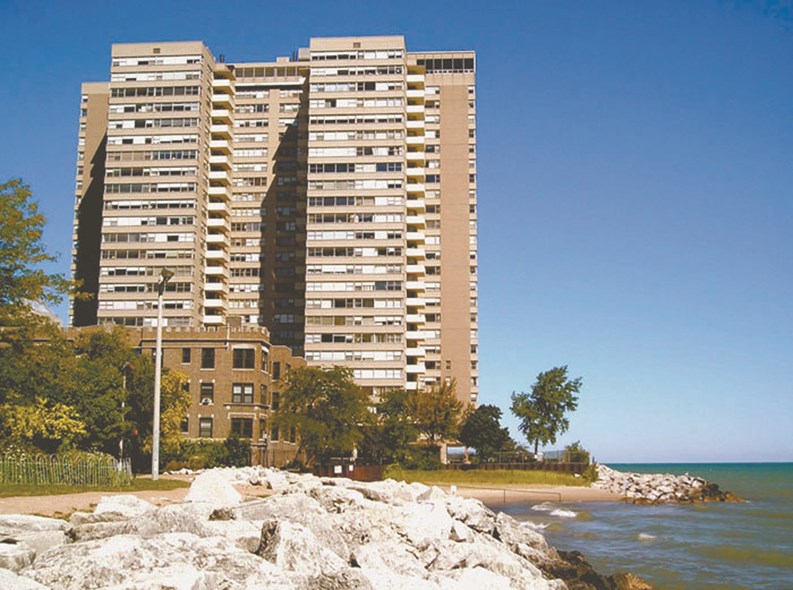There's no denying it: the housing bubble has definitely burst. And while there is still some speculation on how, when and why, most financial experts agree that the correction and balancing process has begun—though it will likely be long and painful.
There is enough pain to go around; pain for property owners, developers and investors. A decade ago, flipping properties was a national pastime; now just holding on to your property can be a challenge. And no one is exempt, says John A. Kilpatrick, the CEO at Greenfield Advisors LLC, based in Seattle. Back in June of 2007, he cited the link between increased foreclosures and local property devaluation. “The innocent houses that happen to be sitting next to those [foreclosed] properties are going to take a hit.”
Challenging times call for creative solutions, and a few savvy property management firms in Chicago have worked hard to find viable solutions to contain costs and recoup losses. Allowing condo owners to rent or sublet units remains a controversial option, but it is a trend that has taken hold in many areas, and has helped some associations keep their heads above water and their budgets balanced.
Protecting Values
Wolin-Levin Inc., the property management firm for Shoreline Towers Condominium in West Rogers Park north of Chicago worked with that condo association to develop an aggressive plan to protect property values. Shoreline Towers is a 25-story, 378-unit condominium situated on the shore of Lake Michigan. This prime property had it all; location, restaurants, shopping, striking views of the city skyline...and units in foreclosure.
In an unusual—and gutsy—move, the association used reserve funds to purchase the foreclosed units, then rented them, rather than attempting to sell them in a down market. When the real estate market improves, the plan is to sell them outright—but in the meantime, the association can recover unpaid assessments and keep the building fully occupied.
In addition to the buy-and-rent strategy, Shoreline Towers also put in place a right of first refusal clause for any other units going up for sale. The clause prevents a condo from selling below market value, protecting the overall values in the building and protecting the owners from the need for any special assessments. The board requires 30 days written notice of intent to sell. If the list price is considered threatening to the overall property values, the association can purchase the property and rent the unit instead.
All this being said, Shoreline Towers is located just a block south of Loyola University and three blocks from the Granville Red Line station. It's a very desirable location—which is a big reason why the association's buy-back strategy works for them. It may not be a feasible option in other situations or settings, or for properties with fewer amenities to offer a renter.
While there is a large pool of potential renters available, there are an even greater number of properties to choose from. New developments planned and in construction when the housing market tanked may not offer the surrounding support system of shops, businesses, restaurants and entertainment that make a neighborhood a neighborhood.
And in older, more established condo communities, there may be significant push-back from unit owners at the idea of bringing rental tenants into the building. Attorney David C. Hartwell, a partner at Penland & Hartwell, LLC in Chicago, notes that there still needs to be some give and take when renters occupy even a few units in a condominium. “There is bound to be some tension; renters enjoy the same rights in the association as an owner, but owners carry the responsibility and the liability,” he says. On the other hand, if a renter has an issue, it has to be directed to the owner or the property management team. Renters do not typically have a voice, he says. “It is a different dynamic.”
Reverse Condominium Conversion
David Allswang, an attorney with Holland & Knight in Chicago has noticed a similar trend in newly-constructed properties, most often still owned by the developer. So-called “reverse condominium conversions” have allowed developers to quickly improve their cash flow by renting units in properties originally intended as condos. The idea behind this approach is that while it's not a complete, win-win solution for sluggish sales in a development, it's preferable to allowing units to founder in foreclosure or sell at current devalued rates. In many cases, the real winners in a reverse conversion scenario are the renters, who are able to move into better-constructed buildings with more bells and whistles than a typical rental property.
“It's hard for the developer to get full value in a condo-to-rental conversion," says Allswang, but he adds that one plus side is the ease with which such a conversion can be enacted. There is no governmental approval required to convert, no lender issues, and staving off foreclosure can also help with overall market recovery—a point Kilpatrick cited in the Bloomberg News in June of 2007. “Living in an area with multiple foreclosures can result in a 10 to 20 percent decrease in property values," he says. "In some cases, that can wipe out the equity of homeowners or leave them owing more on their mortgage than the house is worth.”
Changing Views at Board Level
While there may be relatively few legal or procedural hassles in converting condo units into rentals, often the same cannot be said for getting fully-vested unit owners onboard with such a plan. Common opinion is that owners take better care of a property, that renters are not vested in building maintenance, upkeep, or community for the long haul, and frequent turnover of tenants adds extra wear-and-tear to common areas like hallways and elevators. Many associations’ have cut-and-dried guidelines on if and when units may be rented—if they allow it at all. But difficult times require reexamining all options available to protect property values over the long term. When units stand empty and assessments are not paid, the operating budget is strained. If funds are not available when capital improvements are needed, boards are frequently forced to postpone repairs or levy a special assessment on already-stressed unit owners. Adapting and reworking rental policies is an uneasy compromise at best, with rental policies in struggling condo buildings ranging from permissive to rigid.
Regardless of where your building falls on the rental-friendliness spectrum, the pros stress that it's very important to keep the percentage of rental units below Federal Housing Administration (FHA) owner-occupancy requirements so government-backed mortgages remain an option for potential buyers. Currently FHA requires a 50 percent ratio of owners to renters—so converting 60 of your 100 condo units to rentals, even temporarily, would have some very serious ramifications for the financial well-being of the building, and could put you deeper in the weeds than you were to begin with.
Also, while there are no real governmental roadblocks to converting units (aside from the aforementioned FHA thresholds), a condo association's own governing documents may have quite a bit to say on the matter. Boards must abide by their community's rules and do their due diligence to confirm that they have the authority to make a change on leasing, or if changes being contemplated require a super majority vote from the owners. Any appearance of favoritism or discrimination—much less the real thing— must be avoided, and the Illinois Condominium Property Act should be checked for compliance as well.
Joanna Dziok, owner of Chicago-based Integral Residential, LLC, has seen most of her associations allow owners to rent or sublet units due to hardship. In an article that appeared in the Chicago Tribune last November, Dziok separated hardships into two categories: financial and medical. Some condos have taken a subjective, case-by-case approach to allowing rentals, resting the burden of proof of hardship on the owner, and sometimes requiring the disclosure of sensitive personal information in order to verify that renting the unit is indeed appropriate.
Dziok, who manages a dozen low- to mid- rise properties throughout the city does not see any significant changes on the horizon for at least two to three years. Her advice to property owners, “Plan to hunker down and do not sell if possible before 2014." Dziok says that her biggest ongoing challenge is in helping owners come to terms with the reality of property values. “It's a mental adjustment,” she says. “Many owners still have an inflated idea of current property value.”
For his part, Allswang says he favors a universally-relaxed policy for all owners, rather than delving into and assessing the specific hardships of a few. He suggests opening a window for a specific time for all owners, and then re-evaluating. “Administratively, it’s easier,” he says. “With a hardship provision, you need to deal with owners case-by-case, which can get very personal and very emotional. People aren’t so keen on providing all the information on why they have a hardship.”
Brian White, executive director of the Lakeside Community Development Corporation on West Wallen Avenue in Chicago is in favor of hardship exemptions, especially when it can help avoid a foreclosure. White says he would like to see those exceptions set up with reasonable requirements such as credit counseling, or landlord training. Providing training and education for association boards is the main thrust of White's HUD-approved company, which works mostly with small, self-managed condo associations and a few cooperative properties. White believes that training is the best policy to reduce the risk of default, particularly with first time homebuyers. “Training is the missing piece," he stresses. "Training, using the tools in place—such as the Illinois Condominium Property Act—and moving aggressively on collections will help associations reclaim some of the losses accumulated over the last three to five years."
If Hartwell’s earlier predictions are on target, White has a few more years to teach the hard lessons before the market corrects itself. Hartwell believes the light at the end of the tunnel is still five to seven years in the future as supply and demand even out.
In the meantime, boards and property managers will likely have to ask themselves and their residents some tough questions, and continue to seek creative—and financially workable—solutions to the challenges posed by the still-struggling market.
Anne Childers is a freelance writer and realtor living in Florida and a frequent contributor to The Chicagoland Cooperator.





Leave a Comment